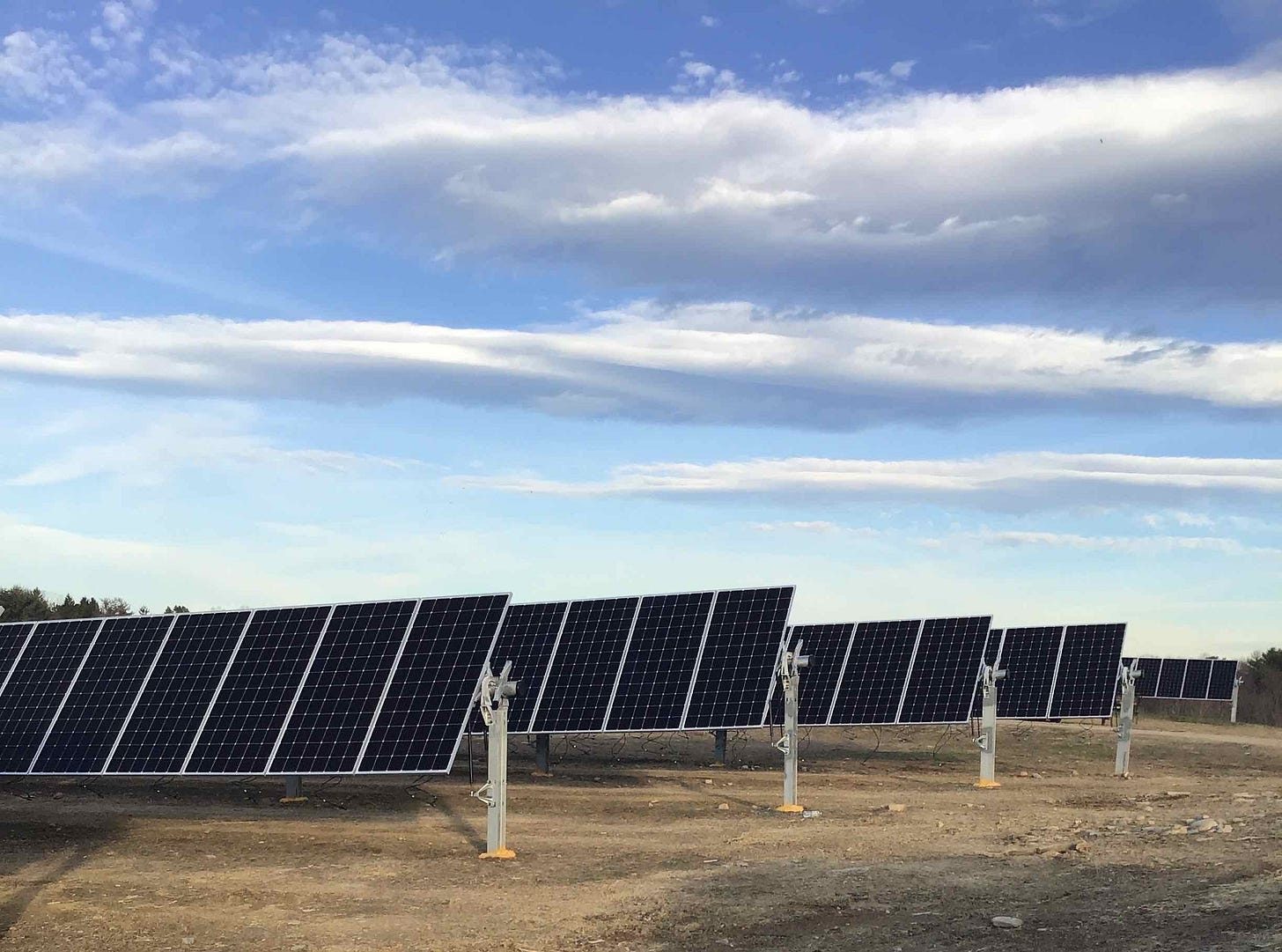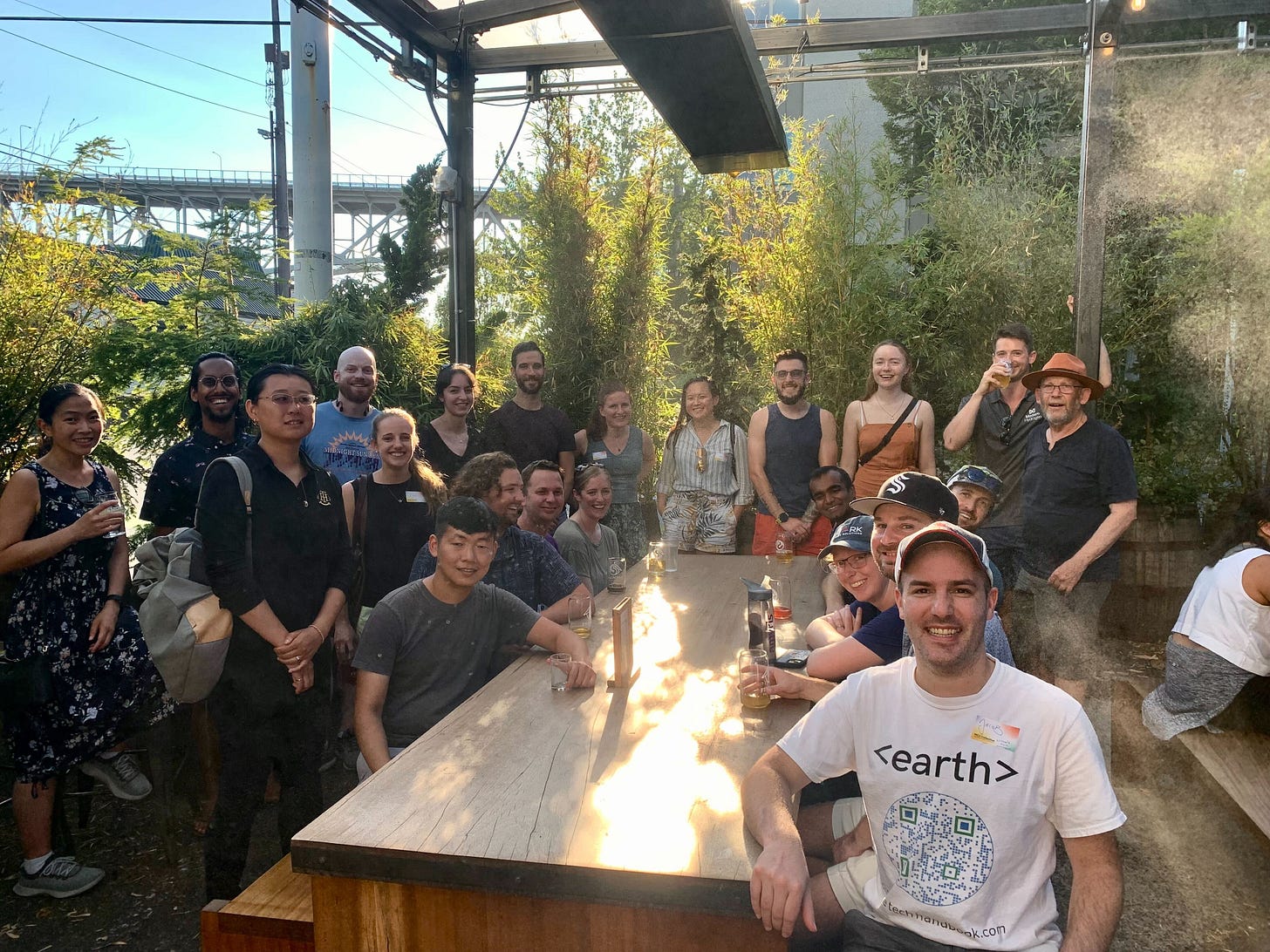Renewable Energy Pioneers Proved What’s Possible. Now, Investors Must Scale the Solutions – and Fast
by Dana Cotter, Managing Director of Impact, ImpactAssets
The UN Secretary-General has stated that if global climate goals for 2050 are to remain within reach, investment in the energy transition must triple by 2030. This will require a breathtaking scope of infrastructure projects varying in size, financing needs, technical expertise and community impact. Projects could range from solar panels on single-family homes to utility-scale wind farms that require community buy-in – from one-off energy upgrades of public buildings to the replacement of a municipality’s truck fleet with electric vehicles.
Despite this urgent investment need, infrastructure projects are struggling to attract sufficient funding. At the same time, creative new investment and financing approaches are emerging to fill key funding gaps and nurture the growth of the green infrastructure sector.
The Challenges—and Benefits—of Distributed Power Systems
Legacy, fossil-fuel-powered systems are typically centralized—with power plants at the nucleus of complex networks of power lines and cables transmitting electricity. The future energy system will be more distributed, with new sources of power (like solar) closer to where energy is consumed such as homes, schools and community centers. While distributed energy systems boast benefits including the ability to integrate different renewables and provide energy resilience and backup power, projects are complex to finance and hard to operate at scale.
“People assume that because solar panels are less expensive than fossil-fuels, the energy transition will take care of itself,” says Jeff Sheridan, Executive Vice President and Head of Business Development at Greenbacker Capital, an investment manager that also acts as a long-term owner-operator of renewable energy projects like solar plants, wind farms and battery storage systems. “The truth is there’s a tremendous amount of work that really has to go into this.”
The ecosystem of companies building green infrastructure—and installing it, maintaining it, upgrading it—is still nascent and comprised of players of various sizes and levels of expertise. Another hurdle is getting customers comfortable with different payment structures.
“If you go to a public company and you say, ‘Let’s put solar on your roof, it’ll save you X amount and cost Y up front,’ that company is likely to say, ‘What I care about is driving sales of my product, not operating a power plant and saving money that way,’” says Andrew Hughes, a Principal and head of investor relations at Generate Capital, a company that finances, builds, owns and operates sustainable infrastructure, making decarbonization solutions more accessible to companies, governments and communities. “They’re looking to pay for things the same way they always have—by making a monthly electricity payment, for example.”
Community-Level Infrastructure Projects Demand Flexible Financing
Generate’s approach offers an example of what it looks like to tailor individualized solutions to the bespoke customer needs presented by the transition to clean energy. The firm’s “infrastructure-as-a-service” approach focuses on projects that are too small or unique to qualify for conventional financing. Its customers—businesses, municipalities, and universities—are eager to transition to cleaner electricity but lack the upfront capital or technical expertise to make the switch.
“We’re focused on deploying technology solutions that underpin the energy transition today by allowing businesses and communities to meet their decarbonization goals without taking any operational or financial risks,” says Hughes. “We are serving customers directly and through our technology partners, offering them flexible solutions across energy, waste, water, food, transportation and smart city infrastructure.”
This model is making a big impact. In 2022 alone, Generate’s 2,000+ assets diverted 770,000 metric tons of waste to more productive uses and displaced roughly 725,000 metric tons of CO2—the equivalent of removing the emissions from 160,000 cars.
Investing in the Maturation of the Clean Energy Economy
Greenbacker has a different approach to scaling infrastructure. Focused on large projects, the company is a major owner and operator of commercial and utility-scale renewable energy power facilities in the U.S.
The firm is also focused on closing skill gaps in the job market and creating pathways for people seeking careers in the clean energy economy. Due to the U.S. passing historic legislation, the Inflation Reduction Act is likely to drive the creation of nine million new jobs in the U.S. alone —many of which will require new skills. Greenbacker co-developed middle and high school curriculum introducing clean energy concepts, works with universities to hire interns, and co-runs job training programs in Colorado for future installers of renewable energy projects. By building the pipeline of talent, and providing training for future workers, Greenbacker is investing in the people that will be vital to powering the energy systems of the future.
As investors, we share a responsibility to invest in the full spectrum of project sizes and scopes if the world is to achieve net zero. Building and scaling solutions will require a range of investment — from private equity and growth capital (to support early-stage innovation and bridge to commercialization), to private debt for more established technologies. There has never been greater need, nor greater opportunity, to put investment dollars to work serving the full spectrum of need.
Disclaimer: ImpactAssets is an investor in Greenbacker Capital and Generate Capital through its donor advised fund investment platform.
🍿 The Lean Back
Hear about Windfall Bio’s methane-eating microbes in the latest MCJ Startup Series.
🔈 Climate Action of the Week
Sign up for the next Climate Changemakers Hour of Action here.
The EPA is awarding $7 billion in grants to states and municipalities to help deliver lasting access to solar power in underserved communities. Our states and cities need all the help they can get in proposing robust solar programs that make a lasting impact for the people who need it most. As constituents, we can encourage them to apply, provide recommendations for proposed initiatives, and connect them to helpful resources. Here’s the playbook!
🎙️ My Climate Journey Podcast
🔒 Cody talked to Danielle Deiseroth, Executive Director at Data for Progress, about what polls are revealing about climate change from a messaging and policy perspective, plus trigger words and popular policies. Listen to the episode here.
💰 In the Capital Series, Jason’s guest was Ben Kortlang, Partner at G2 Venture Partners. We covered Ben's path to venture capital and climate investing, his thoughts on the Cleantech 1.0 wave and some of the lessons learned. Tune in to the Capital Series here.
🦠 Josh Silverman, Founder and CEO of Windfall Bio, discussed the problem of methane and Windfall’s methane-eating microbes (video above!), plus how Josh has grown the business. Listen to the Startup Series here.
👩💻 Climate Jobs
For more open positions, check out the #j-climatejobs channel in MCJ Slack as well as our MCJ Job Board.
Software Engineer at Crusoe (San Francisco, CA)
Electrical Project Engineer at Heirloom (Brisbane, CA)
Bioprocess Engineer at Hoxton Farms (London, UK)
Engineering Technician at Lightship (San Francisco, CA)
Carbon Strategist at Patch (Remote)
Manager, Sustainability, Enterprise Ecosystem at Rheaply (Remote)
Enterprise Account Executive at SINAI (Remote)
Executive Administrative Assistant at Solugen (Houston, TX)
Director, Product Marketing at Span.IO (San Francisco, CA)
Senior Water Advisor at Waterplan (Remote)
✨ Community Highlights


🗓 Climate Events
Click the event title for details & RSVP info. For more climate events, check out the #c-events channel in MCJ Slack.
✨ MCJ AMA: Danielle Deiseroth - Data for Progress: Danielle serves as the Executive Director of the think tank for the future of progressivism. Data for Progress produces polling, database messaging, and policy generation for progressive causes, campaigns and candidates. Get your questions ready and RSVP here to be notified when the AMA kicks off. (8/24)
👋 Community Welcome Call: Connect, share and learn with members. (8/24)
🍺 MCJ SF Climate Tech Meetup: Mingle, share climate journeys and check in on what we are looking for and have to offer over some beers. (8/24)
🍔 MCJ Seattle Meetup: This August event is focused on alternative proteins as a climate mitigation solution. (8/24)
📚 MCJ Book Club: Saving Us by Katharine : We'll discuss the ideas presented in the book. (8/26)
🚺 Women in Climate Meetup: Monthly meetup for women who work in, or want to work in, climate. (8/30)
🇨🇦 MCJ Toronto People & Nature: Impactful Stories through Film: Join us for networking, learning, and a night full of incredible short films! (8/31)
The MCJ Newsletter is a free weekly email curating news, jobs, My Climate Journey podcast episodes, and other noteworthy happenings in the MCJ member community.
💭 If you have feedback or items you’d like to include, feel free to reach out.
🤝 If you’d like to become an MCJ community member, apply today.
💡 Have a climate-related event or content topic that you'd like to see in the MCJ newsletter? Email us at content@mcjcollective.com






